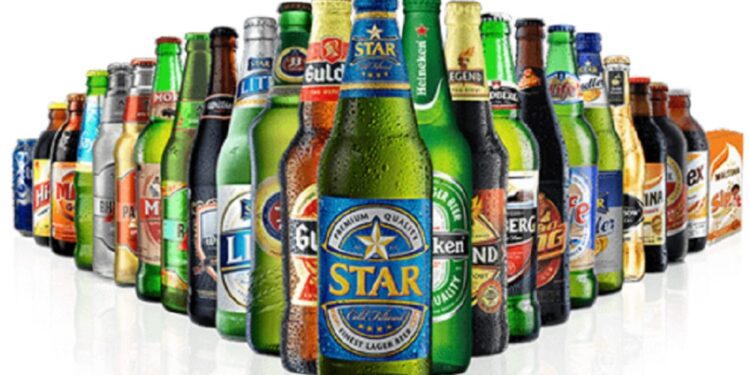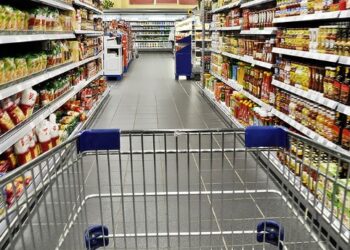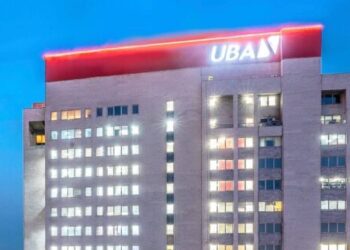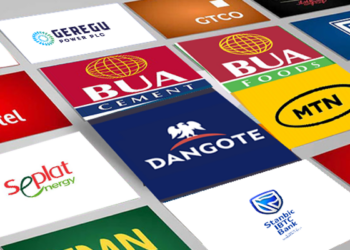- Nigerian Breweries Plc (NB), one of the country’s oldest brewers, has bounced back with a remarkable recovery. In the first half of 2025, the brewing giant posted N738.14 billion in revenue, a robust 53.85% jump from N479.77 billion in H1 2024.
- Notably, Nigerian Breweries returned to profitability in H1 2025, posting a profit after tax of N88.42 billion compared to a loss of N85.20 billion in H1 2024.
- The company appears on track toward surpassing the 2024 full year if current growth momentum holds, having already achieved over 68% of its 2024 full-year turnover.
- The recovery was driven by robust revenue growth, stronger gross margins, and a sharp decline in finance costs, though high VAT outflows and working capital strain weighed on cash conversion.
The company achieved N354.51 billion in net revenue in Q2 2025 alone and N738.14 billion in H1 2025 revenue, representing a strong performance.
Cost of sales grew but at a slower pace at 33.45% year-on-year, improving gross margins at 42.13%, supported by disciplined cost management and operational efficiencies.
The business of brewing Nigeria’s favorite beers
NB is more than a beer company. It operates a diversified beverage portfolio spanning:
- Lager beers: Star, Gulder, Heineken
- Stouts: Legend, Amstel Malta Stout
- Malt drinks: Amstel Malta, Fayrouz
- Wines and spirits: via Distell Nigeria (fully acquired in March 2025)
- Soft drinks and water: in select markets
These products are distributed through three key channels:
- Consumer Market – Retail outlets, bars, and supermarkets.
- On-Trade – Restaurants, hotels, and lounges.
- Off-Trade – Distributors and wholesalers.
This breadth gives NB unrivalled reach and brand loyalty, enabling it to pass through price increases and still defend volumes.
Where the money comes from
Nigerian Breweries’ revenue surge reflects a resurgent demand for alcoholic beverages such as beer, stout, and malt drinks, non-alcoholic options including soft drinks and bottled water, amid a recovering economy.
NB’s H1 2025 performance shows a strong rebound across all metrics:
- Revenue: N738.14 billion, a strong 53.85% year-on-year recovery. Sales to Nigeria and export.
- Gross Profit: N310.99 billion, which implies a gross margin of roughly 42%, and a notable improvement of 94.76% YoY growth, reflecting successful price pass-through and cost management.
- Operating Profit: N151.90 billion, giving an operating margin of 20.6% and a year-on-year gain of 298.27%.
- Profit After Tax: N88.42 billion (basic earnings per share of N2.85 on a post-right-issue weighted basis), as against loss of N85.20 billion in H1 2024.
NB’s revenue growth is driven by several interrelated factors:
- Price revisions – NB pushed product prices upward to offset inflation, FX-driven input costs (barley, packaging, fuel), and excise hikes.
- Seasonal & resilient demand – festive consumption (Easter, Sallah) plus strong demand for malt drinks helped volumes hold up.
- Cost discipline – gross margin expansion shows tighter cost control despite high input costs.
- Finance relief – Rights Issue proceeds reduced FX-denominated debt, slashing net finance costs by 87%.
- Distell integration – completing the acquisition of Distell Wines & Spirits Nigeria (DWSN) broadened NB’s premium portfolio.
The competition
NB still dominates Nigeria’s beer market, but rivals are closing in:
Nigerian Breweries
- H1 2025 Revenue: N738.14 bn
- Market Position: Largest by volume, assets, distribution
International Breweries
- H1 2025 Revenue: N340.99 billion
- Market Position: Fastest growing by shareholder returns
Guinness Nigeria Plc
- H1 2025 Revenue: N259.6 billion
- Market Position: Strong rebound, +82% revenue growth
How Nigerian Breweries generates cash
NB’s cash model thrives on everyday consumption and seasonal peaks.
In H1 2025:
- Cash generated from operating activities (gross): N45.12 billion before working capital adjustments and statutory payments.
- Net operating cash (after VAT & tax): inflow of N7.18 billion, up from N115.72 billion outflow in H1 2024. VAT alone absorbed N34.6bn, weighing heavily on cash conversion.
- Investing cash outflow: N32.44 billion (mainly for plant & equipment upgrades)
- Financing cash outflow: N49.62 billion (loan repayments and dividends).
- Interest paid: N21.84 billion.
- Cash & equivalents: N77.70 billion (NB shows improved cash buffers compared to prior period).
Despite modest net cash, the company’s equity base rose to N549.5 billion, up from N463.9 billion in the corresponding period, reflecting stronger retained earnings.
How NB uses its cash
NB’s H1 2025 cash allocation shows a disciplined balance:
- Capex: N31.10 billion invested in property, plant and equipment
- Debt reduction: Repayment of loans and borrowing if N116.84 billion
- Net gain/loss on foreign exchange: N7.32 billion gain (versus N112.27 billion loss in H1 2024)
- Finance cost: N27.82 billion (versus N42.53 billion in H1 2024)
- Net finance costs: N19.65 billion (versus N154.48 billion in H1 2024)
- Taxes: N43.8 billion paid (effective tax rate of 32.7%)
The absence of crushing FX losses, combined with steady investment, marks a return to more “normal” for operating conditions.
How Nigerian Breweries shares its wealth
NB’s wealth creation cascades across stakeholders:
- Employees – salaries, pensions, benefits (across 3,000+ staff)
- Government – N43.8bn in taxes and levies in H1 2025
- Lenders – N19.7 billion in net finance expenses, sharply lower by 87.28% year on year
- Reinvestment – N31 billion ploughed into capex for future growth
What this says about NB
Nigerian Breweries’ H1 2025 rebound demonstrates how strong brands, prudent financial discipline, and a well product mix can sustain consumer traction even in a challenging economy. By deleveraging its balance sheet, broadening its product mix through Distell, and enforcing tighter cost controls, the company has shown to be one of the leading in Nigeria’s beer market.
With healthier fundamentals, Nigerian Breweries now has the flexibility to scale distribution, strengthen shareholder returns, and keep Nigeria’s favorite beers, malts, and spirits flowing across bars, shops, and households nationwide.
























